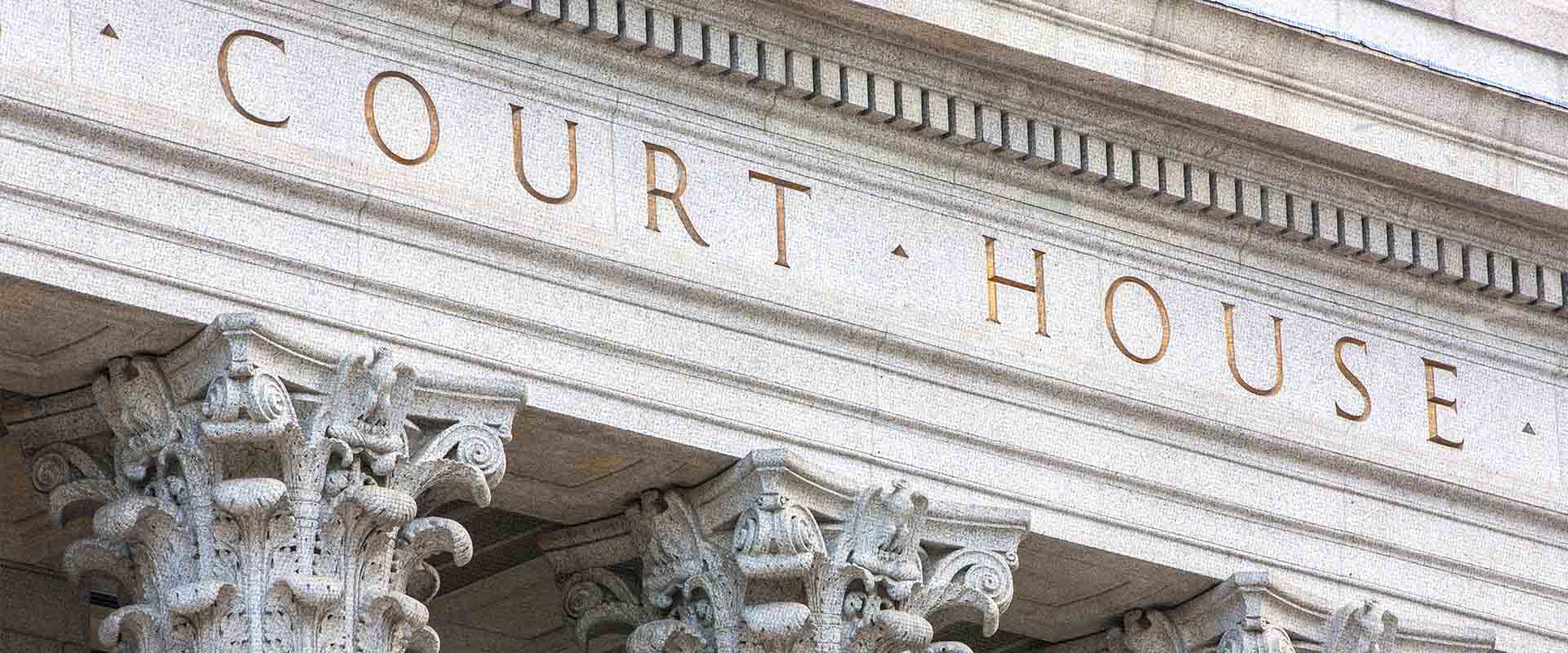Public Agencies Must Disclose All Public Documents Regardless of the Record's Origin

April 2020
Number 25
In Becerra v. Superior Court of San Francisco, California's First District Court of Appeal broadened the definition of documents that public agencies must provide pursuant to a request made under the Public Records Act (PRA), to include records in the possession of the agency regardless of the record's origin. The court held that the PRA "generally requires disclosure of all responsive records in the possession of the Department, regardless whether the records pertain to officers employed by the Department or by another public agency and regardless whether the Department or another public agency created the records."
Background
The PRA requires public agencies to respond and produce public records whenever they are requested. On January 1, 2019, Senate Bill (SB) 1421 expanded California Penal Code section 832.7 and 832.8 making some peace officer records, previously held to be confidential, public documents under the PRA. (See 2018 Client News Brief No. 60) Those records which are now considered public records include peace officer records involving incidents of the discharge of a firearm at a person, use of force resulting in death or great bodily injury, sustained findings of dishonesty, or sustained findings of sexual assault.
After SB 1421 became law, a coalition of news organizations called theFirst Amendment Coalition requested records from the DOJ. The Attorney General objected to the request, in part, stating that it would not provide documents that it received from other agencies as the DOJ was not the agency that "maintains" those documents. They asked the First Amendment Coalition to request those documents from the separate agencies directly. In response to the objections, the First Amendment Coalition filed a lawsuit seeking to compel the DOJ to produce the requested records. The trial court granted the First Amendment Coalition's writ and ordered the DOJ to produce all the requested documents by January 4, 2020. The DOJ filed an appeal requesting that the trial court order be vacated with respect to the disclosure of records relating to other agencies' officers.
Becerra v. Superior Court of San Francisco
This case represents the first time a court has directly tackled the issue of disclosing records in the possession of one agency, but which were created by another agency. The Court of Appeal evaluated the language of Penal Code section 832.7, as amended by SB 1421, and the PRA.
Following its evaluation, the Court of Appeal concluded that based on a plain reading of the PRA, members of the public may inspect any record "retained by" or in the possession of a state agency, despite whether the record was "prepared, owned, [or] used" by the state agency. The Court of Appeal applying this analysis to the new requirement for disclosure of peace officer records found that both the plain language of the statute and the legislative history of SB 1421 supported the position that the statute requires disclosure of all responsive records in the agency's possession, regardless of where the peace officer was employed or which agency created the record.
Takeaways
The Becerra case provides a broader interpretation of what documents must be disclosed under the PRA and SB 1421, effectively changing a long standing practice by many agencies of not producing records generated by other agencies. As many law enforcement agencies have experienced, the requests for public records under the new provisions of the Penal Code have been numerous and show no sign of ceasing. As more requests come in, issues and interpretation of the new law will continue to evolve. This new case will not only change long standing practices of many agencies, but could have other consequences. For example this new case could be interpreted to require district attorneys' offices to disclose records from local agencies which relate to issues of officer misconduct if the conduct falls within the four enumerated categories. It could also require agencies to expend additional resources to review all of their records to determine if the agency possesses any documents from other entities responsive to the request received. This is only one of the first opinions, and it is anticipated others will be forthcoming, therefore it is recommended that agencies work with their legal counsel to navigate this new era of transparency.
For more information on the Becerra opinion, please contact the authors of this Client News Brief or an attorney at one of our eight offices located statewide. You can also subscribe to our podcast, follow us on Facebook, Twitter and LinkedIn or download our mobile app.
Number 25
In Becerra v. Superior Court of San Francisco, California's First District Court of Appeal broadened the definition of documents that public agencies must provide pursuant to a request made under the Public Records Act (PRA), to include records in the possession of the agency regardless of the record's origin. The court held that the PRA "generally requires disclosure of all responsive records in the possession of the Department, regardless whether the records pertain to officers employed by the Department or by another public agency and regardless whether the Department or another public agency created the records."
Background
The PRA requires public agencies to respond and produce public records whenever they are requested. On January 1, 2019, Senate Bill (SB) 1421 expanded California Penal Code section 832.7 and 832.8 making some peace officer records, previously held to be confidential, public documents under the PRA. (See 2018 Client News Brief No. 60) Those records which are now considered public records include peace officer records involving incidents of the discharge of a firearm at a person, use of force resulting in death or great bodily injury, sustained findings of dishonesty, or sustained findings of sexual assault.
After SB 1421 became law, a coalition of news organizations called theFirst Amendment Coalition requested records from the DOJ. The Attorney General objected to the request, in part, stating that it would not provide documents that it received from other agencies as the DOJ was not the agency that "maintains" those documents. They asked the First Amendment Coalition to request those documents from the separate agencies directly. In response to the objections, the First Amendment Coalition filed a lawsuit seeking to compel the DOJ to produce the requested records. The trial court granted the First Amendment Coalition's writ and ordered the DOJ to produce all the requested documents by January 4, 2020. The DOJ filed an appeal requesting that the trial court order be vacated with respect to the disclosure of records relating to other agencies' officers.
Becerra v. Superior Court of San Francisco
This case represents the first time a court has directly tackled the issue of disclosing records in the possession of one agency, but which were created by another agency. The Court of Appeal evaluated the language of Penal Code section 832.7, as amended by SB 1421, and the PRA.
Following its evaluation, the Court of Appeal concluded that based on a plain reading of the PRA, members of the public may inspect any record "retained by" or in the possession of a state agency, despite whether the record was "prepared, owned, [or] used" by the state agency. The Court of Appeal applying this analysis to the new requirement for disclosure of peace officer records found that both the plain language of the statute and the legislative history of SB 1421 supported the position that the statute requires disclosure of all responsive records in the agency's possession, regardless of where the peace officer was employed or which agency created the record.
Takeaways
The Becerra case provides a broader interpretation of what documents must be disclosed under the PRA and SB 1421, effectively changing a long standing practice by many agencies of not producing records generated by other agencies. As many law enforcement agencies have experienced, the requests for public records under the new provisions of the Penal Code have been numerous and show no sign of ceasing. As more requests come in, issues and interpretation of the new law will continue to evolve. This new case will not only change long standing practices of many agencies, but could have other consequences. For example this new case could be interpreted to require district attorneys' offices to disclose records from local agencies which relate to issues of officer misconduct if the conduct falls within the four enumerated categories. It could also require agencies to expend additional resources to review all of their records to determine if the agency possesses any documents from other entities responsive to the request received. This is only one of the first opinions, and it is anticipated others will be forthcoming, therefore it is recommended that agencies work with their legal counsel to navigate this new era of transparency.
For more information on the Becerra opinion, please contact the authors of this Client News Brief or an attorney at one of our eight offices located statewide. You can also subscribe to our podcast, follow us on Facebook, Twitter and LinkedIn or download our mobile app.
As the information contained herein is necessarily general, its application to a particular set of facts and circumstances may vary. For this reason, this News Brief does not constitute legal advice. We recommend that you consult with your counsel prior to acting on the information contained herein.





